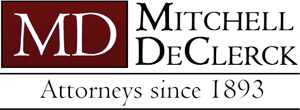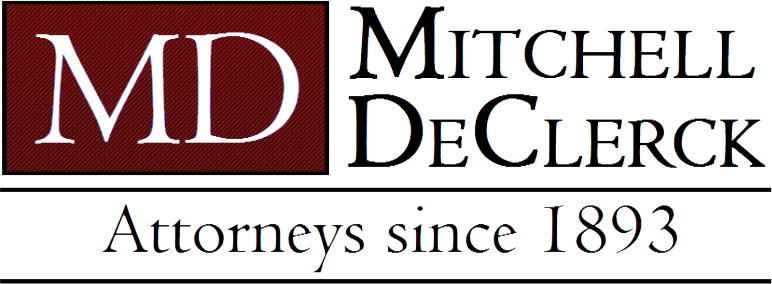Should You File For Consumer Bankruptcy? We Can Help You Understand When To File And Why.
Many people have a slight misunderstanding of what bankruptcy is. Let’s start by talking about what it is not. bankruptcy is not failure. Bankruptcy is recognizing the need to get your debt under control. The bankruptcy program was devised so that people everywhere could get out from under crushing debt, start again and build up credit.
At Mitchell DeClerck, PLLC, we have attorneys who focus on consumer (personal) bankruptcy. We can help you understand whether you are a good candidate for bankruptcy and why. We can walk you through the process. Then, if you decide to move forward with a clean slate, we will be there every step of the way, taking care of issues, filing the necessary forms and protecting your best interests.
Two Types Of Personal Bankruptcy
There are actually several types of bankruptcy. Some relate to business and some are for specific areas such as fishing or farming. We help individuals and couples file for Chapter 7 or Chapter 13.
While these are both types of personal or “consumer” bankruptcy types. There are a few differences:
- Chapter 7: Also called “liquidation” or “straight bankruptcy” this is the most common form of bankruptcy. It is called liquidation because instead of creating a repayment plan and paying off your debts, a trustee sells off certain assets and then you repay what you can with that money. There are certain things you own that are exempt from being sold. Certain assets or property may be subject to liens and mortgages that pledge the property to certain creditors.
- Chapter 13: Also called “reorganization” or a “wage earner’s plan.” If you have a regular income you may be able to create a plan to consolidate and slowly pay off your creditors. The judge may approve your plan without the approval of your creditors as long as the plan meets the statutory requirements. Plans are usually three to five years in length and may not exceed five years. With this type of bankruptcy you may be able to cure arrearages on a mortgage, avoid underwater junior mortgages or other liens, pay back taxes over time or partially repay general unsecured debt.
After you file for either type of bankruptcy you are immediately protected from your creditors. Creditors can no longer contact you after the automatic stay is enacted. Get more details to more bankruptcy concerns on our debt and bankruptcy page, our FAQ page or our property and bankruptcy page.
What To Do If A Creditor Keeps Contacting You After You File
While it is not how things normally happen, occasionally a creditor will continue to contact you after you file for bankruptcy. There are three steps to take if this happens. First, tell the creditor of your bankruptcy filing. Second, give them the case name, case number and filing date. If they request it, you can provide them with a copy of the petition.
If a creditor still continues to harass you about the debt you may need to take legal action against the creditor. Our team is ready to do this for our clients and will take all necessary steps to stop any creditor contact or harassment.
Have A Conversation With Us Regarding Your Next Steps
Every bankruptcy situation is different. There are some instances when bankruptcy is not the best option. We offer straightforward advice on what your options are and how we can help. Call or email us to set up a free initial consultation. Call 580-498-1787 or send an inquiry email, and we will get in touch with you. Located in Enid, we serve bankruptcy clients throughout Garfield County.
We are a debt relief agency. We help people file for bankruptcy relief under the Bankruptcy Code.

